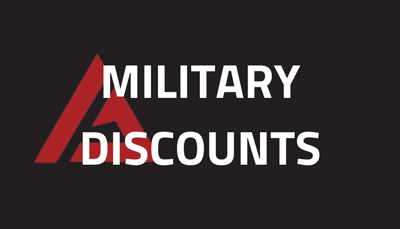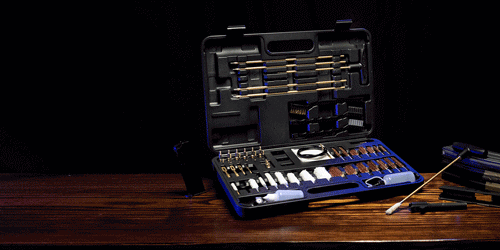Shooting Range Etiquette: What Every Shooter Should Know
Whether you're a seasoned marksman or a beginner, shooting ranges are an excellent place to practice and refine your skills. However, just as with any other public space, shooting ranges have their own set of rules and etiquette that every shooter should follow to ensure a safe, respectful, and enjoyable experience for everyone involved.
While some of these norms may vary slightly from one range to another, there are a few universal principles that should always be adhered to. The etiquette not only helps maintain safety but also fosters a respectful environment for fellow shooters.

Safety First: The Golden Rule
Safety is the primary concern at any shooting range. Before doing anything else, it’s crucial to familiarize yourself with the basic rules of firearm safety. These guidelines are your responsibility, and you should always follow them.
The Four Basic Rules of Firearm Safety:
-
Always treat a gun as if it is loaded— even if you are certain it's not.
- Keep your finger off the trigger until you're ready to shoot— don't touch the trigger unless you intend to fire.
-
Always be aware of your target and what's beyond it— ensure that your target is clear and that there's a safe backstop behind it.
Adhering to these fundamental safety principles is not just a courtesy; it’s an absolute necessity to prevent accidents.

Follow the Range's Rules and Instructions
Each shooting range will have its own set of specific rules and procedures. These might include things like range hours, types of firearms allowed, and specific equipment that should be used. Always take the time to read and understand these rules before you begin shooting.
Additionally, if there are range officers or staff, listen carefully to their instructions. They are there to maintain order and safety, and their guidance will help ensure your time at the range is both enjoyable and accident-free.
Key things to check before you shoot:
-
Range conditions— Some ranges may close due to weather conditions or other safety concerns.
-
Target placement— Make sure you're setting up your target in the correct area to avoid misfires or shooting outside of the designated space.
-
Allowed calibers— Certain ranges may restrict high-velocity rounds or certain types of ammunition.
-
Eye and ear protection — Most ranges require shooters to wear hearing and eye protection. Bring your own, or rent it if necessary. If you have sensitive ears, you can wear both earplugs and earmuffs for extra protection, or opt for high-quality electronic earmuffs. Gloryfire Bluetooth Earbuds reduce the noise of gunshots while still allowing you to hear normal sounds, like conversations with safety officers or fellow shooters, so you can wear them throughout your practice without feeling isolated.

Be Aware of Range Etiquette
A shooting range is a shared space, and just like any public area, etiquette is key to ensuring everyone has a positive experience. Below are a few ways to be mindful of other shooters:
Respect Personal SpaceWhile you’re at the range, it’s important to be considerate of the space around you. Make sure you're not crowding other shooters, especially if they are focused on their target. Give fellow shooters room to maneuver and avoid standing too close to the firing line.
Be Mindful of NoiseFirearms are loud, and ranges can get noisy. While it’s impossible to avoid the noise of gunfire entirely, being mindful of unnecessary chatter or distractions can make the experience more pleasant for everyone. Keep conversations quiet and focused, particularly when others are shooting.

Wait for Ceasefire Commands
Most ranges operate under a strict "ceasefire" rule, where everyone stops shooting at regular intervals to allow shooters to check targets, change targets, or retrieve items. If you hear the ceasefire command, immediately stop shooting, place your firearm down safely, and wait for further instructions from the range officer. Never move forward of the firing line unless instructed to do so.
Don't Interrupt Other Shooters
If someone is in the middle of a session and you need to ask a question or make a comment, do so when they are not actively shooting. Respect their focus and concentration. If you're new to the sport, many shooters are happy to offer advice, but it's important to do so in a way that doesn't interrupt their shooting experience.
Clean Up After Yourself
This one is often overlooked but is essential for maintaining a respectful environment. After you’re done shooting, be sure to pick up any trash, brass casings, or spent targets. Ranges are typically shared spaces, and it's important to leave your area as clean, if not cleaner, than you found it.

Be Responsible with Firearm Handling
Always handle your firearm with the utmost care, both when you're at the shooting line and when you're not. When not in use, ensure that your gun is unloaded and safely stored in a holster or bag. Even when walking between your station and the designated safe areas, always point the muzzle in a safe direction and keep your finger off the trigger.
Never place your firearm on the bench or any other surface in a way that could cause accidental discharge. If you need to adjust your firearm, make sure it's safe to do so. Additionally, never bring a loaded firearm into a restroom, car, or any other non-shooting area.

Respect Range Officers and Staff
Range officers are there to enforce rules, maintain order, and ensure everyone is safe. They should be treated with the same respect you'd show any professional in a safety-critical role. If a range officer gives you instructions, follow them promptly and without argument.
In the event that you are unsure about a specific rule or situation, don’t hesitate to ask for clarification. Range officers are experienced and are often more than happy to assist you—whether it’s with firearm handling tips or range-specific procedures.

Be Aware of Your Own Skill Level
If you’re a new shooter, take the time to learn the basics and build your skill level gradually. It’s important to be honest about your experience and comfort with your firearm, as this helps ensure your safety and the safety of others around you. Many ranges offer beginner classes or sessions with an instructor to help you build confidence and learn the correct techniques.
Experienced shooters should also be aware of their own skill level. If you’re shooting at a more advanced range, or if you're using a firearm that you're less familiar with, don’t hesitate to ask for help or take it slow.

Respect Other Shooters' Time
Shooting can be an involved activity, especially when sighting in a rifle or working on advanced techniques. However, it’s important to be aware of the time you spend at the range, particularly during peak hours. If the range is busy, be conscious of how long you're using the firing line or equipment. Consider sharing the space and giving others a chance to shoot.

Don't Hog the Firing Line
If there is a line or waitlist, don’t monopolize the lane for an extended period. Make sure you're giving others an opportunity to shoot, especially if you’re taking long pauses between rounds or making adjustments to your firearm.
Limit Gunfire Between Ceasefires
Once a ceasefire is called, refrain from loading your firearm or getting into position until it’s time to resume shooting. When the range goes cold, it's for everyone’s safety and convenience.

Conclusion: A Safe and Enjoyable Experience for All
Shooting range etiquette is not just about following rules—it’s about creating a safe, enjoyable environment where everyone can enjoy the sport responsibly. Whether you’re a beginner or a seasoned shooter, being mindful of these guidelines ensures that you and everyone around you can have a fun, productive, and safe time at the range. Always prioritize safety, respect for others, and a responsible attitude toward firearms, and you’ll be sure to make the most of your time at the shooting range.





